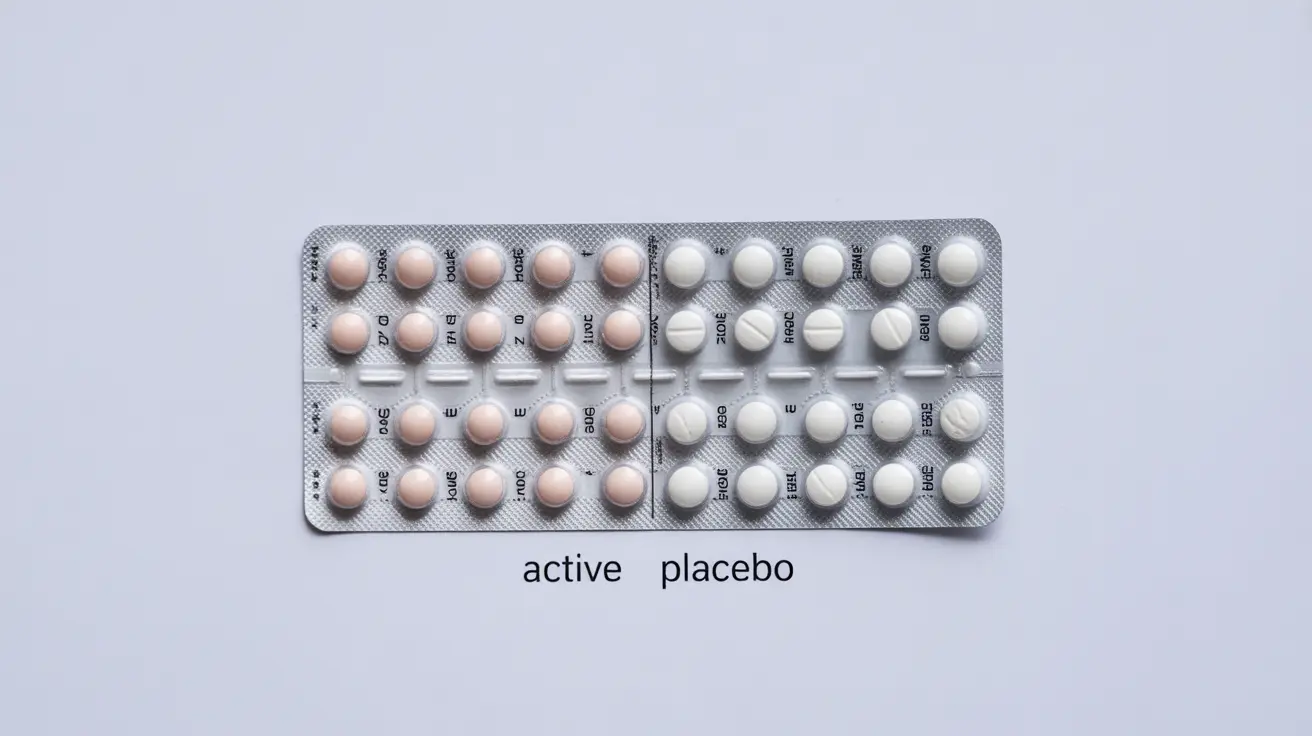Birth control pills are a widely used form of contraception, but many users have questions about the different types of pills in their pack, particularly the white ones. Understanding the role and purpose of these white pills is crucial for using birth control effectively and safely.
In this comprehensive guide, we'll explore everything you need to know about the white pills in your birth control pack, including their purpose, how they work, and what happens if you skip them.
What Are the White Pills in Birth Control?
The white pills in birth control packs are typically placebo or reminder pills that don't contain active hormones. These pills are included in your monthly pack to help you maintain your daily pill-taking routine and manage your menstrual cycle. Most combination birth control packs contain 21 active hormone pills and 7 placebo pills, though some variations exist.
The Purpose of Placebo Pills
While the white pills don't contain active hormones, they serve several important purposes in birth control therapy:
- Maintaining routine and habit
- Providing a scheduled break for withdrawal bleeding
- Helping track your monthly cycle
- Ensuring you start your next pack on time
How Placebo Pills Work with Your Body
During the week you take the white pills, your body experiences a drop in hormone levels similar to what occurs during a natural menstrual cycle. This hormone withdrawal triggers bleeding, though this isn't technically a true period. The bleeding you experience is called withdrawal bleeding and is generally lighter and more predictable than a natural period.
Protection During the Placebo Week
Many women wonder about their pregnancy protection during the placebo week. When taken correctly, birth control pills provide continuous pregnancy prevention, even during the week of placebo pills. However, this protection depends on starting your next pack of active pills on time and taking them consistently.
Important Considerations for Placebo Week
To maintain effective contraception during the placebo week:
- Complete all active pills in your current pack
- Don't extend the placebo week beyond 7 days
- Start your new pack on schedule
- Continue taking pills at the same time each day
Skipping the Placebo Pills
Some users choose to skip the placebo pills and start a new pack immediately after finishing the active pills. This practice, known as continuous birth control, can be safe when discussed with your healthcare provider. It may help manage certain medical conditions or simply reduce the frequency of withdrawal bleeding.
Frequently Asked Questions
What are the white pills in my birth control pack, and do they contain hormones? The white pills are placebo or reminder pills that don't contain hormones. They're included to maintain your daily pill-taking routine and manage your menstrual cycle.
Do I still need protection against pregnancy during the week I take the white placebo pills? Yes, you remain protected against pregnancy during the placebo week as long as you've taken all active pills correctly and start your next pack on time.
Why do birth control packs include white pills if they don't prevent pregnancy? White pills help maintain your daily routine, provide a scheduled break for withdrawal bleeding, and ensure you start your next pack on the correct day.
What happens if I skip the white placebo pills in my birth control pack? Skipping the placebo pills and starting a new pack immediately is safe and can reduce the frequency of withdrawal bleeding. However, consult your healthcare provider before making this change.
Is the bleeding I get on the white pills a real period, and how is it different from a natural period? The bleeding during the placebo week is withdrawal bleeding, not a true period. It's typically lighter and more predictable than a natural period because it's triggered by the withdrawal of hormones rather than your natural menstrual cycle.




